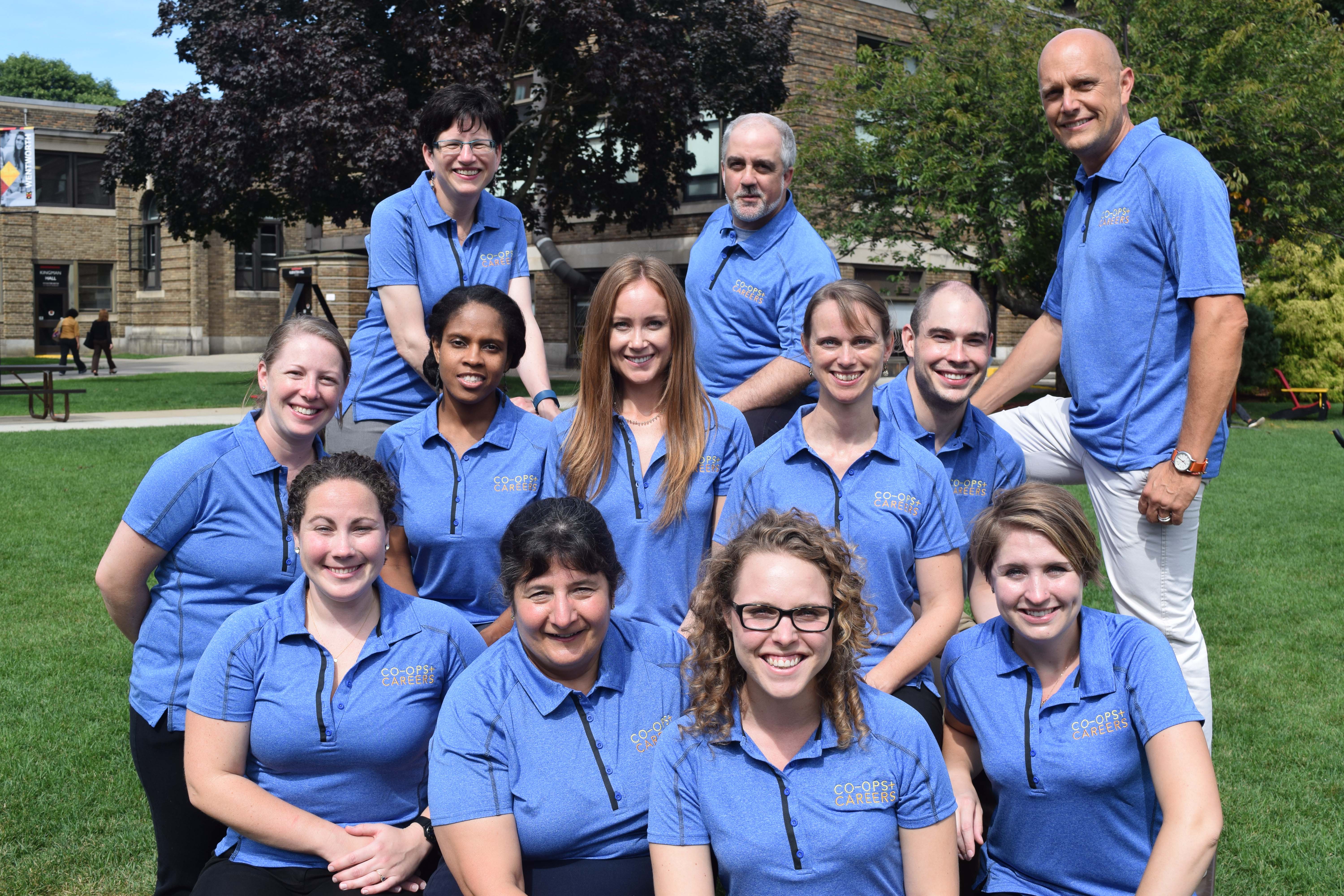 By: Chawney Weis & Abbey Pober
By: Chawney Weis & Abbey Pober
Our second annual Fall CO-OP + CAREER Fair was held on Tuesday, October 3rd from 2:30pm – 6:00pm in both Watson Auditorium and Tansey Gymnasium. This was the first time we held this event in two locations, with 214 employers in attendance. These employers ranged from small local construction firms to international high-tech organizations and everything in between. The buzz about campus surrounding the employers attending drew more than 850 students from all majors, seeking both co-op and full-time positions, to The Fair.
If you are a student who attended the CO-OP + CAREER Fair last week your next steps should be to follow up with employers by:
-Sending a thank you email to the employers with whom you spoke. Find our guide to thank you notes here. If you need a reminder of which companies with whom you spoke The Fairs App is still available for reference.
-If a recruiter gave you specific instructions, be sure to follow through on those items and then follow up with the recruiter.
-Use this opportunity to include a copy of your resume, even if you gave them one at the Fair.
-Unable to send a thank-you note for lack of contact information? Stay connected with social media: find the company or even the person you spoke with on LinkedIn or Twitter. Follow their feeds to stay up to date on new openings and other news!
If you were unable to attend the Fair this fall don’t miss the spring CO-OP + CAREER Fair on March 20th, 2018. Check The Fairs App as we get closer to the Spring Fair for updates on employers attending.
Employers, be on the lookout for future recruiting opportunities, including Mock Interview Day on November 7th, and our spring CO-OP + CAREER Fair on March 20th.
Thank you to all students and employers who joined on October 3rd for The Fair. A special thank you to our sponsors: Bowdin Construction, Dacon, Bond Brothers, dck Worldwide, Electric Supply Center, Teradyne, Novo Construction, PROCON, Timberline Construction Company, and the Wentworth Alumni Association. Your support makes all the difference.
We look forward to seeing everyone in the spring.
 By: Abbey Pober
By: Abbey Pober Weis
Weis By: Jason Gregoricus
By: Jason Gregoricus